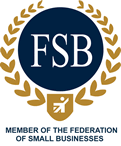Help and Advice
Posted By Mick Davies on May 30, 2011
Computer Help and Advice
10 Tips to protect your PC and data.
Every computer attached to the internet is open to attack from a virus, spyware, hoax emails and phishing. These attacks may damage or delete your important data, or install malicious software which may steal your passwords, credit card details or use your PC to attack other systems over the internet. According to Symantec, an unprotected, unpatched computer system is attacked within 20 minutes of connecting to the internet. The following 10 tips below will assist in protecting a Windows XP computer from such attacks, and help to protect your important data.
- Administrator Account. DO NOT use an account with administrator privileges for everyday use, as this could allow viruses and spyware the ability to self install on your PC. Always create a limited account for everyday use. If you need to install anything you can login as administrator or use Run As (shift and right click the file) to install without logging off.To create a limited account:
Start>Settings>Control Panel>User Accounts
Select Create a new account, give it a name, and select Limited as the account type. - Security Updates. Always ensure that all critical security updates are installed on your computer. These are released by Microsoft each month, and fix known security issues that have been discovered.
- Passwords. Always use a password; the longer the better. Make sure it is not something that someone could easily guess i.e. a child’s name. Use a mixture of numbers, upper-case and lower-case letters, and symbols. Do not write the password down, or let others know what it is.
- Firewalls. Microsoft Windows XP Service pack 2 provides you with a free personal firewall. Make sure that it is activated by going to Start>Settings>Control Panel>Windows Firewall.
Alternatively you can download ZoneAlarm, a free personal firewall for individual use from www.zonelabs.com.If you have a broadband router with built in firewall, ensure that it is active. Details will be in the manual supplied with the router. Only install one software, and one hardware firewall, or you may not be able to connect to the internet. - Anti-virus Software. To protect yourself from viruses, you will need to install an anti-virus software package. There are many commercial packages available, offering complete protection, including firewall, spyware protection, and spam filtering for your email. These packages provided by suppliers such as Mcafee and Symantec will normally have a yearly subscription charge and provide updates for your software as new threats appear. For those on a tight budget there are a many free anti-virus products available, such as Antivir (www.free-av.com), Avast! (www.avast.com) and AVG (www.free.grisoft.com).As mentioned, updates are released for these packages frequently, so you will need to check the settings of your installed anti-virus software to ensure that it is scheduled to automatically install new updates. It is also advisable to set a scheduled time for the software to check your files automatically.
- Anti-spyware & Malware. Spyware and Malware are programs that once installed onto your PC will collect personal information, install other programs and take over your web browser. They will redirect you to other malicious web sites, pop up offensive or irritating advertisements, and also slow down your computer.There are many anti-spyware packages available, including many that are free. Free anti-spyware packages include Microsoft Defender (www.microsoft.com), though the most popular is Ad-aware (www.lavasoft.com), and Search & Destroy (www.spybot.com). Remember to install any updates to ensure full protection from the latest threats.
- Install the Latest Web Browser. Install Microsoft Internet Explorer 10 from (www.microsoft.com) or Firefox from (www.mozilla.com). The latest browsers will provide increased security against phishing (Spoof websites that steal account details). The recent updates will also give you enhancements, such as tabbed browsing, live web feeds (RSS) and pop-up blocking.
- Shared Files and Folders. Check that your important files and folders are not shared. Click on ‘My Computer’, right click your ‘C: Drive’ and select ‘Properties’. Select the ‘Sharing Tab’ and select ‘Do not share this folder’. Click ‘OK’
- Backing up Your Files. Always prepare for the worst. A virus could infect your computer, or a component such as the hard disk may fail. keeping a recent copy of your files and storing them elsewhere could save you hours of work in an emergency. Start getting into the habit of routinely saving all your important files to either a CD, USB flash or external drive. Alternatively back up those files to an online data storage website such as www.humyo.com. It is free to use, has unlimited storage space, and is flexible enough to allow you to share files with friends, and access your data on your mobile phone.
- User Awareness. The final and most important security tip is user awareness. All the extra protection installed will be useless if you install software that has Malware built in. Many file sharing software packages are guilty of this.Do not open email attachments from someone you do not know, or with a suspicious subject. If you need to view them, save the attachment first and check it with your virus software. Do not pass on chain e-mails as these are considered spam.If you have children, make sure that you can see which sites they visit, and make sure they are logged in with a limited account. Install content software similar to net nanny which will restrict malicious or adult web sites.








